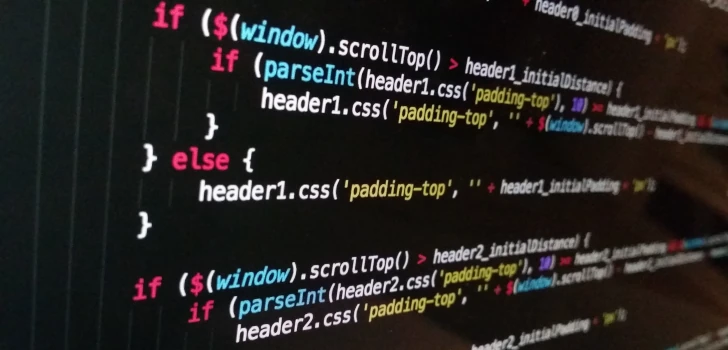
August 10, 2012
As already mentioned in a previous post, the SCO economic situation is not one of the best ones.
After close to 10 years from SCO litigious policy against all UNIX companies and having already declared Chapter 11 bankruptcy, they have filled for Chapter 7.
The difference between the Chapter 11 and Chapter 7 is that Chapter 11 is a situation where the management is still confident that the company can survive after restructuring and reorganization.
Chapter 11, on the other hand, is filled when the management believes there is no way the company can survive and will therefore initiate the liquidation process.
Read More 
May 19, 2012
This book starts with a little introduction and with the instructions to setup the environment.
After this, the book starts at full speed with “the Recipes”.
The structure based on Recipes is what I liked the of this book.
Every Recipe has the structure:
- Problem
- Solution
- Discussion
I think that this is a very powerful structure because in this way we can learn from the obstacles that each one of us can encounter in his way while coding.
Also, this structure, gives to the reader the choice of what read when.
In fact, is possible to read this book from the first page to the last or to pick the single arguments that are useful to him in that precise moment.
Another thing that I really liked about this book is the fact that Jamie Munro uses in the same time PhoneGap and jQuery Mobile so you can learn two libraries in the same time and you can learn immediately to write an application that is nice to see and use.
I really liked this book and I would suggest this book to everyone is interested in using the PhoneGap framework to develop Mobile applications.
Read More 
April 24, 2012
This is not the typical O’Reilly programming book and you can find it out very easily when you have the book in your hands, since it does not have any code inside
The author, in fact, tries to create a software development science.
This left me very puzzled since:
- I think this kind of stuff has to be said by people after you, not buy the author himself
- The author mainly collect ideas and principles that are already explained in a lot of other books
- The author suggests the DRY and the don’t fix if it isn’t broken principles and I think these will not always bring you to good code
- The book only says what to do, it does not cover how to do it
- Re-factoring and single responsibility principle are not covered
Apart of these five points, I think that the book has reasons to live.
It is a really fast and superficial presentation of the subject.
I think it would be appropriate for students who are approaching for the first time the subject or for people that for working reasons have to deal with the subject but not in first person (like a project manager).
I would not suggest this book to people with real world programming experience or necessity.
Read More 
April 19, 2012
This is one of my favorite book about Linux.
Probably is the most favorite one.
In the last years I’ve been looking for a book that was like a printed man with some more explanation and a rigid order.
This book does all this plus something more (that I’d rather not having).
I really liked the professional to professional user, since otherwise it would be much bigger and boring for pro users.
I’ve to say that thanks to this the book is really small.
Read More 
April 17, 2012
jQuery has very interested me in the last period.
I think that it is the best JavaScript library for me.
jQuery UI is a set of functions that allow you to improve the graphics and the functionality of your websites with very few lines of code.
My jQuery level was pretty close before I took the time to read this book.
I’ve found this book amazing and really interesting even for fast-learner as I am (knowing a dozen of languages and libraries I tend to go really fast when I’m studying a new language or library).
I think this book is mainly for beginner or intermediate users since it focuses the reader on the main parts of jQuery UI leaving aside some real-world and advanced coding details that may be crucial in the real world development.
Read More 
April 9, 2012
This book is weird, I’ve to tell you.
I was expecting a book with some examples and some text.
Well, I ended up with a book that, at the first sight, seems more a book for kids rather than a professional book since is 90% images.
The book is clearly organized, each chapter covering one specific aspect.
- Navigation
- Forms
- Tables
- Search, sorting and filters
- Tools
- Charts
- Invitations
- Feedback & Affordance
- Help
- Anti-patterns
After a little while, I learned how to learn (a lot of) good patterns and bad patterns (anti-patterns) from this book.
The downside of the approach the author kept is that all the arguments are not deeply analysed, while the main information are given.
For each topic, Neil shows some patterns pointing out for each one a good use of it and the possible risks using it.
The last chapter (the one about the anti-patterns) is, in my opinion, the most useful.
Here some anti-patterns are analysed pointing out why they are anti-patterns and how to improve them.
Read More 
April 4, 2012
Since the four authors are very popular in the SEO field, I was expecting the best book on SEO ever. All my expectation have been met.
I think that the book authors have done a great job describing these difficult concept in an easy and ordered way.
The book, also, is very complete.
The touched topics include: user-focussed data, key analytical tools, effective website creation, result tracking, search engine theory and behaviour, the impact of social media, SEO best practices and much more.
Sometimes the authors deviate from the topics usually covered in SEO books, in fact you can find topics like In-house vs outsourced SEO.
Read More 
April 1, 2012
jQuery Mobile is a library that allows you to develop mobile apps using jQuery.
Is even possible to use a jQuery Mobile program as a native app, thanks to programs like PhoneGap.
This book assumes that you already know jQuery and I think that this is good since the author can focus only on the main topic in this way.
I think you should know or study jQuery before even starting this book.
I do know that’s possible to understand jQuery code even if you don’t know anything of JavaScript if you have rock solid programming knowledge, but I discourage it.
Read More 
February 28, 2012
Mining the Social Web is a good start for anyone is going to create scripts to analyze patterns in Social Networks.
I’ve to say that this book consider that the reader already masters Python.
I think that should be written directly on the title (ie: “Mining the Social Web with Python”).
I liked the really fast approach to the Social Networks, even if a lot of times I wanted more; for this reason I consider it only a start, not a complete book.
Read More 
December 6, 2011
Gordon Lyon (also known as Fyodor), the creator of Nmap, sent an email yesterday to the Nmap mailing list pointing out that the C|Net Download.com website is altering Nmap downloadable files injecting malware into them.
It’s also possible that other files delivered by C|Net Download.com are also subject to the same problem.
This event is a very problematic one since it will create a complete loss of trust toward Download.com.
It also reminds us of a critical aspect of security: all chain steps need to be secure and trusted.
Read More 








